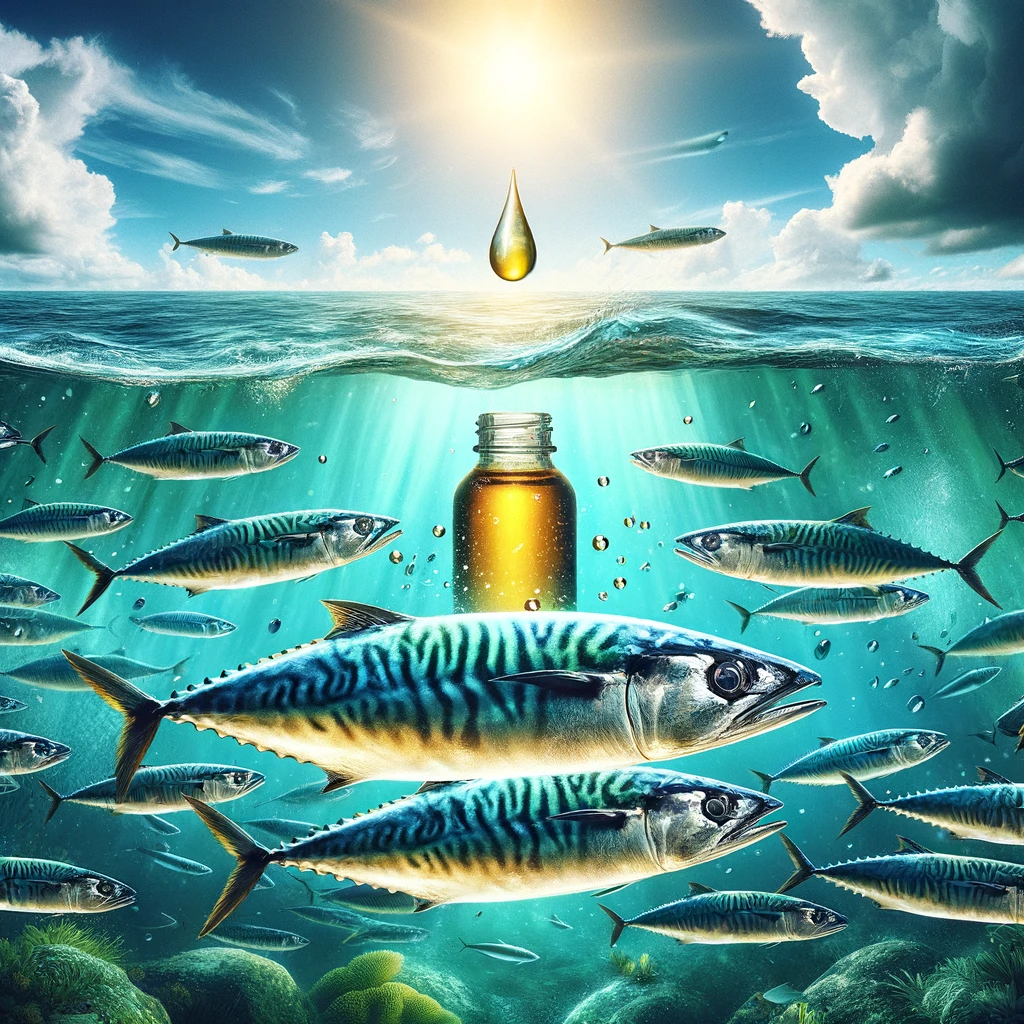
Mackerel, a fish known for its robust presence in the Atlantic, Pacific, and Indian Oceans, has been identified as a sustainable source of fish oil, rich in omega-3 fatty acids and other vital nutrients. As the global community becomes increasingly mindful of the environmental and health impacts of their dietary choices, the focus has shifted towards more sustainable and ethically sourced supplements. Mackerel oil, with its lower environmental footprint and high nutritional value, seems an ideal choice. However, the reality of finding pure, unadulterated mackerel oil on the market is more complicated than it appears.
The Challenge of Purity
While mackerel oil is celebrated for its content of omega-3 fatty acids, such as EPA and DHA, and its contribution to heart health and cognitive function, it remains a rarity in its pure form. Unlike its more commonly found counterparts derived from salmon or cod, mackerel oil is seldom sold on its own. Instead, it is typically blended into ‘fish oil’ mixtures, where its distinct nutritional profile is diluted amongst oils from various species. This practice not only obscures the specific benefits of mackerel oil but also often involves the removal of naturally occurring vitamins during processing.
Nutritional Considerations and Molecular Distillation
Molecular distillation, a process touted for its ability to purify fish oil by removing contaminants such as heavy metals and PCBs, also has its downsides. While ensuring the oil’s purity, this method inadvertently strips away many of the beneficial nutrients found in mackerel oil, including Vitamin D—a crucial component for bone health and immune function. This loss of nutrients during refinement poses a significant challenge, as it diminishes the natural health benefits that make mackerel oil a sought-after supplement.
The nutritional value of mackerel oil, particularly its omega-3 fatty acids, remains a key reason for its appeal. Omega-3s are essential for reducing inflammation, supporting cardiovascular health, and enhancing brain function. However, the absence of Vitamin D and other nutrients in molecularly distilled oils calls into question the completeness of these supplements’ health benefits.
Sustainability and Ethical Concerns
The sustainability of mackerel as a source of fish oil is one of its most compelling attributes. Mackerel populations are generally well-managed, with countries like Norway, Japan, and the United States employing stringent regulations to ensure sustainable fishing practices. These practices include quotas and seasonal closures to prevent overfishing and maintain the health of mackerel stocks. Moreover, mackerel’s lower position in the food chain means they accumulate fewer pollutants, making their oil a cleaner option compared to oils derived from higher trophic level fish.
Despite these environmental advantages, the lack of pure mackerel oil products on the market highlights a gap in the supplement industry. Consumers seeking the specific benefits of mackerel oil are often left navigating labels of ‘fish oil’ blends, where the origin and composition of the oil are obscured.
The Bottom Line
The quest for pure, authentic mackerel oil reveals a complex interplay between the desire for sustainable, nutritious supplements and the realities of commercial fish oil production. While mackerel stands out as an environmentally friendly and nutritionally rich source of omega-3s, the current market offerings fall short of providing it in its most beneficial form. The prevalence of blended fish oils, processed to remove both contaminants and vital nutrients, underscores the need for more transparency and innovation in the production of fish oil supplements. As consumers become more informed and discerning, the demand for pure, minimally processed mackerel oil may drive a shift towards more authentic and healthful supplement options.